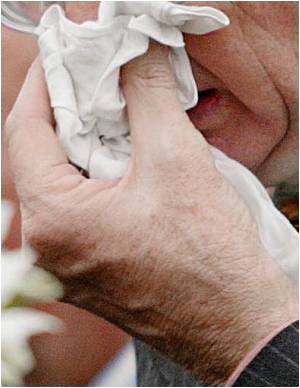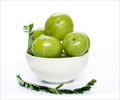When your nose is slowly clogging, the sniffle that is really bothering you and the cough that's persistently nagging, your mom would waste no time to give you a glass of freshly squeezed orange juice along with a vitamin C supplement in an attempt to get rid of the pesky virus more quickly. When it comes to cough and cold, we still cling to the old wives tale. After all vitamin C is such an age old and widely accepted treatment for cold!
The goodness of vitamin C – it not only helps to keep us strong and healthy, but also aids in the formation of collagen in bones, cartilage, muscle and blood vessels, and in the absorption of iron. It is found in its natural form in fruits and vegetables such as citrus fruits, dark green vegetables, peppers, strawberries, cantaloupe, and in products such as fortified juices and cough drops.Having a glass of orange juice is certainly not going to harm you, but it might not do much good particularly when it comes to cold, because research has shown that despite many controlled trials, the role of vitamin C in the prevention and treatment of cold still remains quite controversial.
Few studies have shown positive results while others have not, but the overall consensus is that there is still no definite proof that vitamin C would help cure or prevent colds.
Recent research, however, shows that although vitamin C has little effect on normal people with respect to cold, it is beneficial for people who are under great physical stress. This new study has found that vitamin C reduces the occurrence of common cold by half, but only in people with short-term, heavy physical stress.
Harri Hemilä from the Department of Public Health at the University of Helisinki and Elizabeth Chalker from Curtin, ACT in Australia studied three groups of active people: Marathon runners, Swiss school children in a skiing camp and Canadian soldiers performing winter exercises.
The researchers said “Regular ingestion of vitamin C had no effect on common cold incidence in the ordinary population, based on 29 trial comparisons involving 11,306 participants … However, regular supplementation had a modest but consistent effect in reducing the duration of common cold symptoms, which is based on 31 study comparisons with 9745 common cold episodes.”
In another recent study, the effects of vitamin C were seen to be gender specific. When given to teenaged members of a swimming team, vitamin C cut the duration of cold in half only for the boys, whereas the girls were not affected by their daily dose of the vitamin.
Few therapeutic trials, wherein vitamin C was given only after the first symptoms of cold appeared have been carried out, but their results are not consistent. It was found that when taken after the onset of a cold, vitamin C supplements do not make it shorter or less severe. Also, the relationship of dose to therapeutic benefit merits further exploration.
It could take several years of research to conclusively prove the role of vitamin C in common cold, but that should not stop you from consuming a diet packed with the goodness of vitamin which is rich in antioxidants so as to fight free radicals and to boost your immune system.
Squeeze the health and goodness out of an orange daily and feel the difference for life!
Source-Medindia















